Importing goods from China to Kenya can be a lucrative business opportunity for entrepreneurs and businesses alike. With China’s vast array of products and Kenya’s growing market potential, understanding the import procedures is essential for a seamless transaction. Navigating through various regulations, documentation, and logistics can be daunting, but with the right knowledge, you can simplify the process. In this blog, we will explore the key steps involved in the import procedure from China to Kenya, ensuring you are well-equipped to make informed decisions throughout your importing journey.
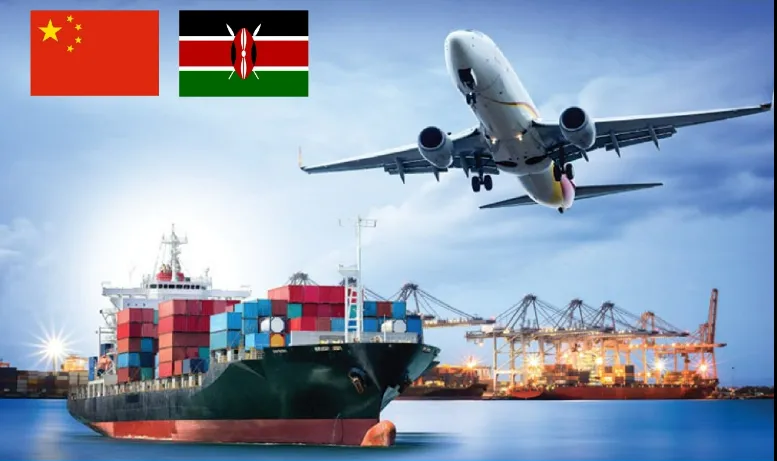
1. Selecting the Right Products in Kenya
Research the Demand in the Kenya Market
Before diving into imports, conducting thorough market research is crucial. Understanding the demand for specific products in Kenya allows you to tailor your offerings to meet local consumer needs. Analyze market trends, consumer preferences, and economic factors that influence buying behavior. Utilize local resources such as government reports, industry studies, and market surveys to gather valuable insights.

Identify Profitable and Suitable Products for Import
Once you have a grasp on market demand, the next step is identifying products that are both profitable and suitable for importation. Focus on items that have a steady demand but limited competition in the Kenyan market. Consider engaging with local wholesalers and retailers to discover what products are currently trending. For instance, electronics, textiles, and construction materials often present profitable opportunities. Always ensure that the products you choose comply with Kenyan standards and regulations.
Consider Import Restrictions and Prohibited Items
It’s paramount to be aware of any import restrictions and prohibited items before finalizing your product selection. Kenya has specific regulations regarding what can be imported, including safety standards and import duties. Research the Kenya Revenue Authority (KRA) guidelines and consult the Kenya Bureau of Standards for a comprehensive list of restricted items. Understanding these regulations will not only protect your investment but also ensure compliance with legal requirements.
2. Finding Reliable Chinese Suppliers
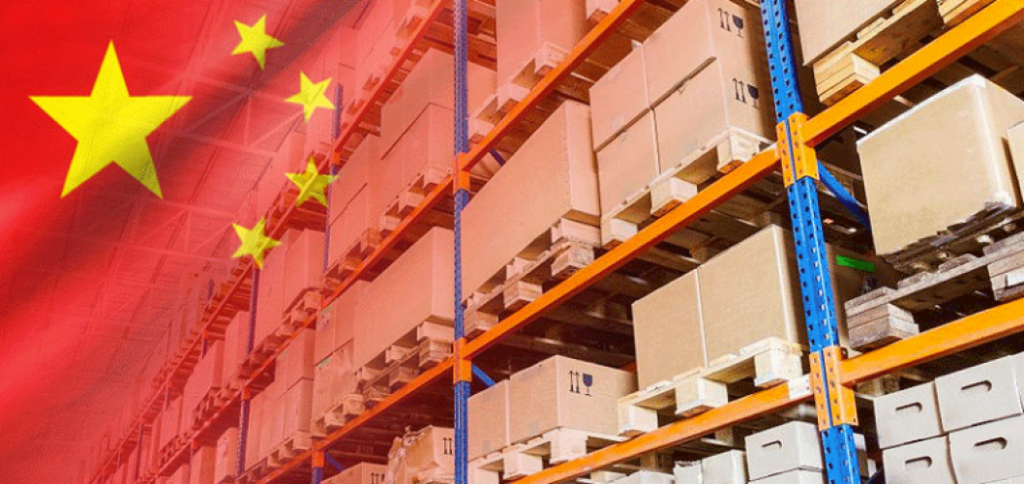
Utilize Online Platforms and Trade Fairs
Finding trustworthy suppliers in China is critical to your import process. Leverage online platforms such as Alibaba, Global Sources, and Made-in-China to browse a wide range of products and suppliers. Participating in trade fairs in China, such as the Canton Fair, can also provide you with direct access to manufacturers and a chance to evaluate products first-hand.
Evaluate the Supplier’s Credibility and Product Quality
Once you have identified potential suppliers, it’s essential to assess their credibility and product quality. Check for certifications, customer reviews, and ratings on platforms to gauge their reliability. Request sample products to evaluate quality before committing to larger orders. Developing a solid relationship with your supplier can facilitate smoother transactions and better terms in the long run.
Establish Contact with Suppliers and Obtain Quotations
After vetting potential suppliers, initiate contact to discuss your import requirements. Provide them with detailed specifications and ask for quotations. Negotiating prices and terms is standard practice, so do not hesitate to seek the best possible deal. Once you have selected a supplier, ensure that all agreements are documented, covering aspects such as payment terms, delivery timelines, and quality control measures.
3.Choosing a Good Freight Forwarding Company
Selecting the right freight forwarding company is a critical step in ensuring the smooth transportation of your goods from China to Kenya. A reliable freight forwarder can simplify the logistics process by managing shipping, customs clearance, and documentation. Here are several key factors to consider when choosing a freight forwarding partner:
Verify the Company’s Credentials and Qualifications
Always start by verifying the credentials and qualifications of the freight forwarding company. Look for certifications such as FIATA (International Federation of Freight Forwarders Associations) and IATA (International Air Transport Association) that demonstrate compliance with international standards. These qualifications indicate that the company adheres to industry best practices and regulations.
Assess the Company’s Experience and Reputation
Experience in the field can greatly impact the quality of service provided by a freight forwarder. Research the company’s history and reputation in the industry. Read customer reviews and testimonials to gauge their reliability and service quality. A reputable company will have a strong track record of successful shipments and satisfied clients.
Evaluate Their Service Offerings and Specializations
Different freight forwarding companies offer varying services. Evaluate what types of services they provide, such as ocean freight, air freight, and customs clearance. Choose a company that specializes in your specific import needs, as this expertise can lead to more efficient handling of your shipments.
Compare Pricing and Value-Added Services
Cost is always an important factor. Compare pricing among different freight forwarders, but also consider the value-added services they offer. Services such as warehousing, packaging, and inventory management can add significant value to your logistics process. A slightly higher price may be justified if it comes with enhanced services that save you time and effort.
Check Their Network and Global Reach
A strong network of agents and partners worldwide is crucial for a freight forwarder. This network ensures timely and efficient handling of your shipments at every stage of the journey. Assess the company’s connections in both China and Kenya to ensure they can manage your logistics smoothly and effectively.
Assess Their Communication and Customer Service
Effective communication is essential for successful freight forwarding. Assess how responsive and approachable the company is during initial interactions. A good freight forwarder should be able to provide timely updates and respond to your inquiries promptly, ensuring you are always informed about the status of your shipments.
Consider Their Technological Capabilities
Modern freight forwarding companies leverage technology to enhance service delivery. Look for companies that offer online tracking systems and digital document management. Technology can significantly streamline the logistics process, making your experience more efficient and transparent.
Review Their Insurance and Liability Coverage
Finally, ensure that the freight forwarder has adequate insurance and liability coverage for your shipments. This protection is vital in the event of loss or damage during transit. Understanding the insurance options available can provide peace of mind and security for your investment.

For a reliable and cost-effective logistics partner, consider Dantful International Logistics. With a highly professional team, a comprehensive range of services, and a commitment to customer satisfaction, Dantful can assist you at every step of your import journey from China to Kenya. Contact us today to discuss your freight forwarding needs!
Dantful International Logistics Services:
- Dantful Ocean Freight Services
- Air Freight From China
- Amazon FBA Freight Forwarding
- WAREHOUSE Services
- One-Stop Customs Clearance Solution
- Cargo Insurance Services in China
- DDP Shipping Services By Dantful Logistics
- Out of Gauge Cargo Transportation Shipping Services
4. Preparing Necessary Documentation
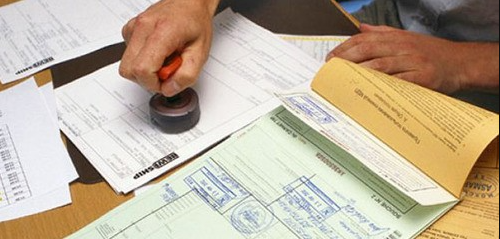
Proper documentation is crucial for smooth importing procedures. Here are the essential documents needed when importing goods from China to Kenya:
Commercial Invoice
The commercial invoice is a crucial document that outlines the transaction between the buyer and the seller. It includes details such as product descriptions, quantities, prices, and payment terms. This document is necessary for customs clearance and helps determine the duties and taxes applicable.
Packing List
A packing list provides a detailed breakdown of the contents of each package being shipped. It includes information such as weight, dimensions, and material descriptions. This document is essential for the freight forwarder and customs officials to verify the shipment’s contents.
Certificate of Origin
The certificate of origin verifies where the goods were manufactured or produced. This document may be required by customs authorities in Kenya to determine eligibility for reduced tariffs or to comply with trade agreements.
Bill of Lading/Airway Bill
The bill of lading (for sea freight) or airway bill (for air freight) serves as a contract between the shipper and the carrier. It details the transportation terms and serves as a receipt for the goods. This document is crucial for tracking shipments and facilitating the release of goods upon arrival.
Inspection Certificates
Certain products might require inspection certificates to verify compliance with quality and safety standards. Ensure that you have the necessary certifications before shipment to avoid any customs issues.
Import Standard Mark (ISM) Certificate
The Import Standard Mark (ISM) certificate is mandatory for certain goods to ensure they meet Kenyan standards. This document is essential for regulatory compliance and must be obtained before importation.
Dantful International Logistics can assist you in preparing all the necessary documentation, ensuring that your imports comply with Kenyan regulations. Our team is experienced in handling documentation requirements, so you can focus on growing your business. Reach out to us for expert assistance!
5. Choosing the Appropriate Mode of Transport
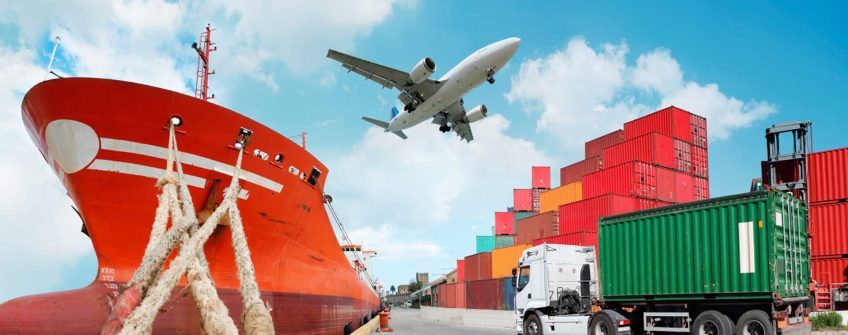
When importing goods from China to Kenya, selecting the right mode of transport is critical for timely and cost-effective delivery. Here are the primary options available:
Sea Freight from China to Kenya
Sea freight is one of the most popular and economical ways to transport larger shipments. With numerous shipping lines available, you can choose to send your goods via FCL (Full Container Load) or LCL (Less than Container Load), depending on your volume. Sea freight is ideal for heavy and bulky items, but it typically takes longer than other transport methods.
Air Freight from China to Kenya
For urgent shipments, air freight is the fastest option. It enables quick delivery of goods, making it suitable for time-sensitive items. However, air freight tends to be more expensive than sea freight, so it is usually recommended for high-value or perishable goods.
Courier Services from China to Kenya
Courier services offer a convenient solution for smaller shipments and documents. They provide door-to-door service and are ideal for urgent deliveries. While courier services are more expensive compared to sea freight, they offer speed and convenience, making them a popular choice for many businesses.
Dantful International Logistics offers a comprehensive range of transport solutions tailored to your specific needs. Whether you prefer sea freight, air freight, or courier services, our experienced team can help you choose the best mode of transport based on your budget and timeline. Contact us today to explore our logistics services and ensure your goods arrive safely and promptly!
READ MORE:
- Shipping From China To Algeria
- Shipping From China To Angola
- Shipping From China To Morocco
- Shipping From China To Nigeria
- Shipping From China To Kenya
- Shipping From China To Tanzania
- Shipping From China To South Africa
6. Handling Customs Clearance
Navigating customs clearance is a crucial step in the import process. Understanding the regulations and procedures involved can streamline your operations and prevent delays. Here are the key factors to consider when handling customs clearance for goods imported from China to Kenya:
Understand Kenya Customs Regulations and Import Duties
Familiarizing yourself with the Kenya customs regulations and the applicable import duties is essential for a smooth clearance process. The Kenya Revenue Authority (KRA) governs the importation of goods, and it’s important to understand the tariffs that may be levied on your imported items. Duties are calculated based on the customs value of the goods, which includes the cost of the product, shipping costs, and insurance fees. Make sure to consult the KRA’s tariff schedule to anticipate the overall costs associated with your imports.
Prepare the Necessary Documents for Customs Clearance
Proper documentation is vital for customs clearance. Ensure that you have all the required documents ready, including the commercial invoice, packing list, bill of lading or airway bill, and any relevant certificates (e.g., inspection certificates and certificate of origin). Having organized and complete documentation will facilitate a quicker inspection process and reduce the likelihood of delays or fines.
Consider Hiring a Customs Broker to Assist with the Process
Hiring a customs broker can significantly simplify the customs clearance process. A broker is a licensed professional who understands the intricacies of customs regulations and can handle the paperwork on your behalf. They can assist you in navigating the complexities of import duties, tariffs, and other compliance requirements. Their expertise can be invaluable in ensuring timely and efficient clearance of your goods, allowing you to focus on other aspects of your business.
At Dantful International Logistics, we offer comprehensive customs clearance services to help you navigate the regulatory landscape when importing from China to Kenya. Our experienced team ensures that all documentation is in order and compliance requirements are met. Contact us today to learn how we can assist you with customs clearance and streamline your import process!
7. Receiving and Inspecting Goods
Once your goods have successfully cleared customs, the next step is to receive and inspect them upon arrival in Kenya. Here are the essential steps to follow:
Receive the Goods at the Kenya Port or Airport
Coordinate with your freight forwarder to arrange for the receipt of your goods at the designated port or airport in Kenya. Ensure that you have the necessary documentation, including the delivery order and customs clearance papers, ready for presentation during the receiving process.
Inspect the Goods for Completeness and Damage
Upon receiving the shipment, it’s crucial to conduct a thorough inspection of the goods. Check for completeness by ensuring that all packages listed in the packing list have arrived. Look for any signs of damage that may have occurred during transit. Document any discrepancies or damages and notify the freight forwarder or supplier immediately to address the issue.
Address Any Issues or Disputes That May Arise
If any problems arise during the inspection, such as missing items or damaged goods, it’s essential to address them promptly. Communicate with your supplier or freight forwarder to resolve disputes. Having clear documentation and a good rapport with your suppliers can help facilitate a swift resolution to any issues.
8. Tips and Recommendations
To ensure a successful import experience, consider the following tips and recommendations:
Stay Informed About Import Regulations and Policies
Import regulations can change frequently, so it’s essential to stay updated on the latest requirements and policies affecting your business. Regularly check the Kenya Revenue Authority (KRA) website and other relevant sources to ensure compliance.
Calculate the Overall Import Cost
Before placing an order, calculate the total cost of importing your goods. Consider all expenses, including product costs, shipping fees, customs duties, and local taxes. Understanding the complete financial picture will help you set competitive prices and boost profitability.
Consider Purchasing Cargo Insurance
Cargo insurance provides protection against potential losses or damages during transit. Investing in cargo insurance can provide peace of mind and safeguard your investment, ensuring you are covered in case of unforeseen incidents.
Establish a Robust Supply Chain Management System
Implementing an efficient supply chain management system can enhance your import process. Track inventory levels, monitor shipment progress, and analyze supplier performance to optimize your operations. A robust supply chain system will improve efficiency and reduce costs over time.
9. FAQs
- What documents are required for customs clearance in Kenya?
- Key documents include the commercial invoice, packing list, bill of lading, certificate of origin, and inspection certificates.
- How can I find a reliable freight forwarder?
- Research potential freight forwarders by assessing their experience, services, customer reviews, and reputation in the industry.
- What are the main import duties in Kenya?
- Import duties vary depending on the product category. It’s essential to consult the Kenya Revenue Authority’s tariff schedule for specific rates.
- Is it necessary to hire a customs broker?
- While it’s not mandatory, hiring a customs broker can simplify the customs clearance process and ensure compliance with regulations.
- How do I inspect goods upon arrival?
- Carefully check each package against the packing list for completeness and inspect for any visible damage before formally accepting the shipment.
10. References
- Kenya Revenue Authority: www.kra.go.ke
- Kenya Bureau of Standards: www.kebs.org
- International Federation of Freight Forwarders Associations (FIATA): www.fiata.org

Young Chiu is a seasoned logistics expert with over 15 years of experience in international freight forwarding and supply chain management. As CEO of Dantful International Logistics, Young is dedicated to providing valuable insights and practical advice to businesses navigating the complexities of global shipping.


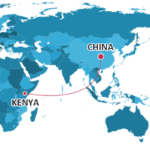
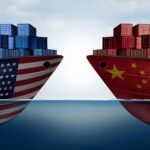








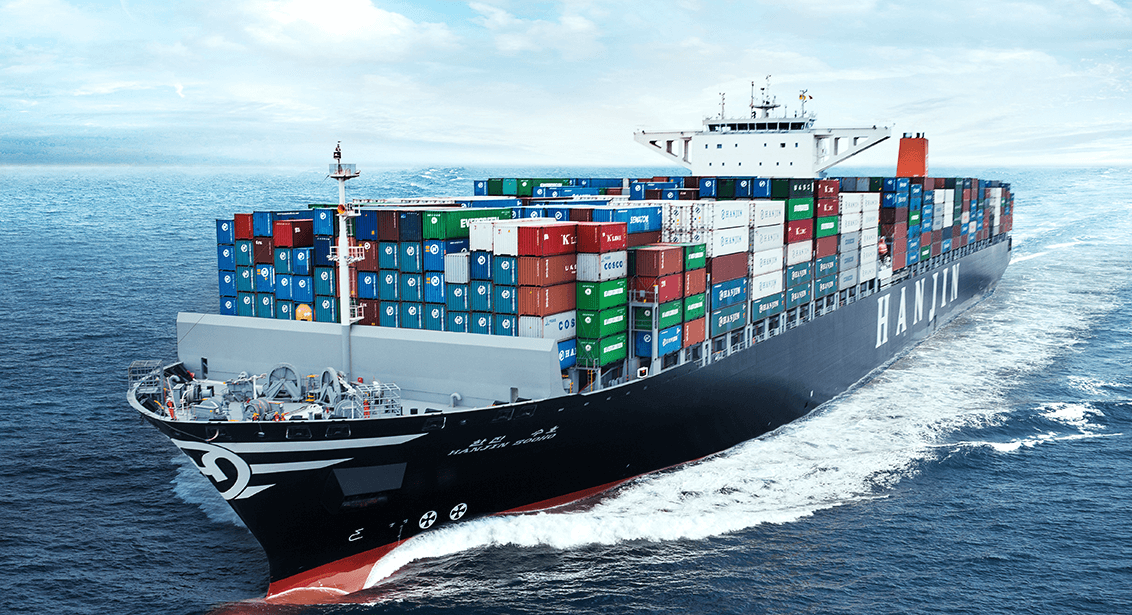
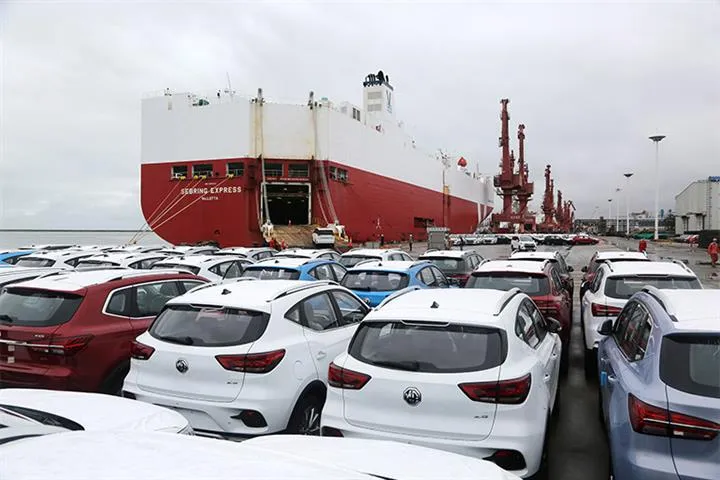







 Afrikaans
Afrikaans Shqip
Shqip አማርኛ
አማርኛ العربية
العربية Հայերեն
Հայերեն Azərbaycan dili
Azərbaycan dili Euskara
Euskara Беларуская мова
Беларуская мова বাংলা
বাংলা Bosanski
Bosanski Български
Български Català
Català Cebuano
Cebuano Chichewa
Chichewa 简体中文
简体中文 繁體中文
繁體中文 Corsu
Corsu Hrvatski
Hrvatski Čeština
Čeština Dansk
Dansk Nederlands
Nederlands English
English Esperanto
Esperanto Eesti
Eesti Filipino
Filipino Suomi
Suomi Français
Français Galego
Galego ქართული
ქართული Deutsch
Deutsch Ελληνικά
Ελληνικά Kreyol ayisyen
Kreyol ayisyen Harshen Hausa
Harshen Hausa Ōlelo Hawaiʻi
Ōlelo Hawaiʻi עִבְרִית
עִבְרִית हिन्दी
हिन्दी Hmong
Hmong Magyar
Magyar Íslenska
Íslenska Igbo
Igbo Bahasa Indonesia
Bahasa Indonesia Gaeilge
Gaeilge Italiano
Italiano 日本語
日本語 Basa Jawa
Basa Jawa ಕನ್ನಡ
ಕನ್ನಡ Қазақ тілі
Қазақ тілі ភាសាខ្មែរ
ភាសាខ្មែរ 한국어
한국어 كوردی
كوردی Кыргызча
Кыргызча ພາສາລາວ
ພາສາລາວ Latin
Latin Latviešu valoda
Latviešu valoda Lietuvių kalba
Lietuvių kalba Lëtzebuergesch
Lëtzebuergesch Македонски јазик
Македонски јазик Malagasy
Malagasy Bahasa Melayu
Bahasa Melayu മലയാളം
മലയാളം Maltese
Maltese Te Reo Māori
Te Reo Māori मराठी
मराठी Монгол
Монгол ဗမာစာ
ဗမာစာ नेपाली
नेपाली Norsk bokmål
Norsk bokmål پښتو
پښتو فارسی
فارسی Polski
Polski Português
Português ਪੰਜਾਬੀ
ਪੰਜਾਬੀ Română
Română Русский
Русский Samoan
Samoan Gàidhlig
Gàidhlig Српски језик
Српски језик Sesotho
Sesotho Shona
Shona سنڌي
سنڌي සිංහල
සිංහල Slovenčina
Slovenčina Slovenščina
Slovenščina Afsoomaali
Afsoomaali Español
Español Basa Sunda
Basa Sunda Kiswahili
Kiswahili Svenska
Svenska Тоҷикӣ
Тоҷикӣ தமிழ்
தமிழ் తెలుగు
తెలుగు ไทย
ไทย Türkçe
Türkçe Українська
Українська اردو
اردو O‘zbekcha
O‘zbekcha Tiếng Việt
Tiếng Việt Cymraeg
Cymraeg יידיש
יידיש Yorùbá
Yorùbá Zulu
Zulu